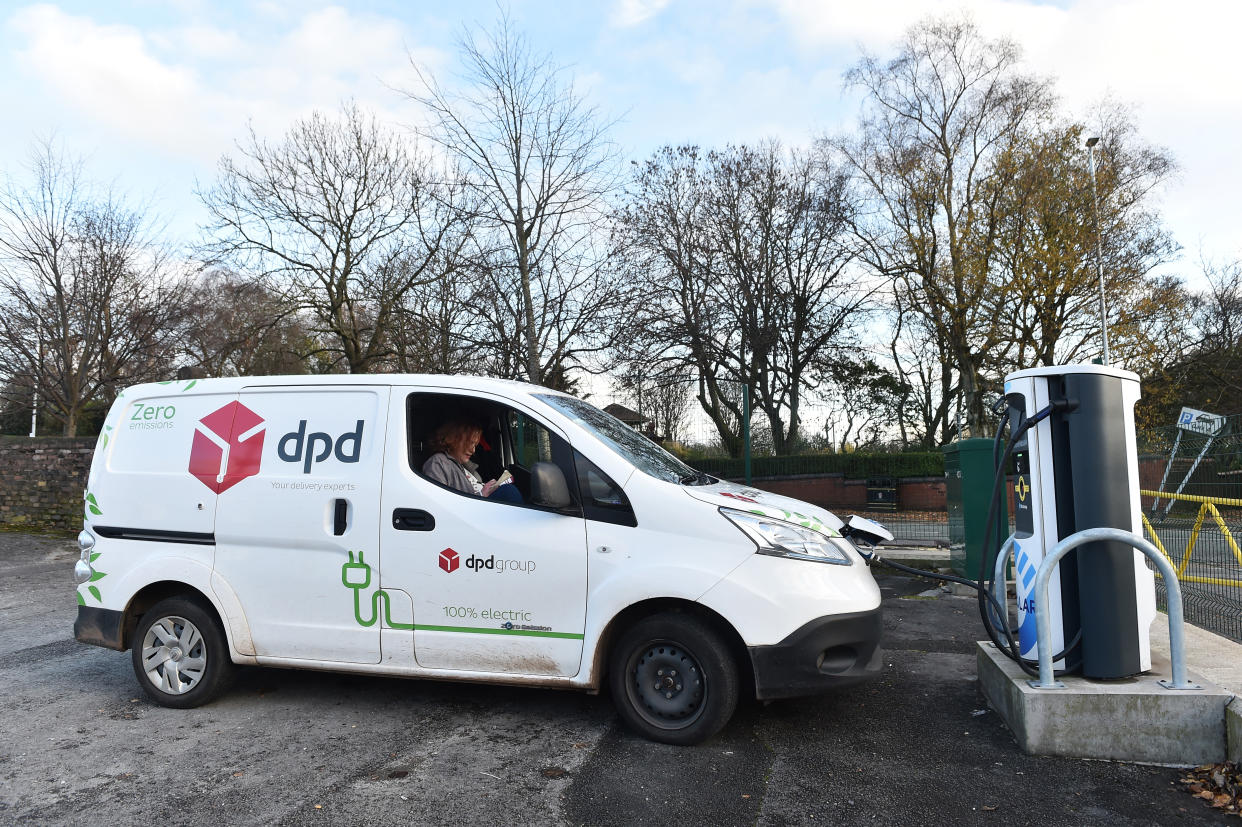Shortage of charging points may hit UK's green ambition and switch to electric vehicles

Better infrastructure is needed to ensure the future of electric vehicles in the UK, and cities need to put more resources into working with commercial fleets.
Those were the findings from a new report from smart parking tech firm AppyWay, which has shown that fleets in the form of company cars, taxis, car shares and logistical vehicles now account for close to 60% of new vehicles registered in the UK.
Alongside these, some 88% of fleets are looking to buy electric cars, but lack of significant networks of charging points threatens to stall progress.
To address this, the report, entitled Leading the Charge – Are cities ready for a fleet-led EV revolution?, recommends a new “ABCD” approach; that is Appropriate infrastructure, Better incentives, Concerted collaboration and Deeper data sharing.
On the infrastructure side of things, research by Energy Saving Trust found 60% of Uber drivers did not have access to off-street parking, rendering them unable to home charge.
Similarly, 44% of Black Cab drivers in London do not have the ability to install a charger at home. The report therefore calls for a greater focus on providing more public on-street charging, including rapid and ultra-fast charge points.
In terms of better incentives, the report says that encouraging fleets to go electric has a trickle-down effect due to the fact that fleets are a common source of second hand cars for individual drivers. This helps provide more affordable access to electric vehicles for private ownership, which AppyWay calls to be incentivised as much as possible through national and local tax and congestion policies.
Furthermore, the report argues that knowledge sharing between cities, infrastructure, solution integrators, and consultants is the only way to ensure that the path to electrification is one that is sustainable, given the complexities involved.
In terms of deeper data sharing, thanks to telematics, GPS, and other job fulfilment information, fleets hold a wealth of data that can be immensely useful in understanding where to locate charging points. The report urges fleets to share data with local authorities.
READ MORE: UK expected to ban new petrol and diesel cars from 2030
Companies are also urging the government to think carefully about their next moves in the electric vehicle space.
Christopher Hook, driver operations clean air & driver earnings lead UK and Ireland at Uber, said: "We’ve committed to become a fully electric mobility platform, with 100% of rides in zero-emission vehicles, by 2040 across every single one of the 700 cities where we operate.
“In the UK we believe that we can get there faster. In London we are aiming to be 100% electric rides by 2025. For all other major European cities, including the cities we operate in across the UK, we aim to be at that point by 2030.
“We won’t be able to deliver this commitment alone. Governments, cities, NGOs, car makers, charging operators and power companies all need to work together to create the right conditions."
James Taylor, general manager at ZipCar UK, said: "If the UK wants to get the benefits of a rapid switch to electric vehicles through utilisation of car sharing we will need significant investment in the charging infrastructure and recognition of the role that car sharing can play in reducing overall car use.
“Currently Zipcar takes care of all re-charging, simply because asking members to do this with the current charging infrastructure would be unviable and would be a poor member experience. But critically this is not a long-term solution."
READ MORE: UK 'green revolution' plan could mean tax on road use
The report comes as chancellor Rishi Sunak is reportedly mulling a road tax scheme that would aim to pay for the £40bn ($52.7bn) shortfall the government would see through phasing out petrol and diesel cars and upping the volumes of EVs on roads by 2030.
The chancellor is said to be “very interested” in road pricing plans to make up the shortfall.
The UK’s only current major toll road is the M6 in the West Midlands. Drivers also face charges when using some tunnels and bridges.
Watch: Rishi Sunak eyes ‘pay-by-the-mile’ road pricing scheme


